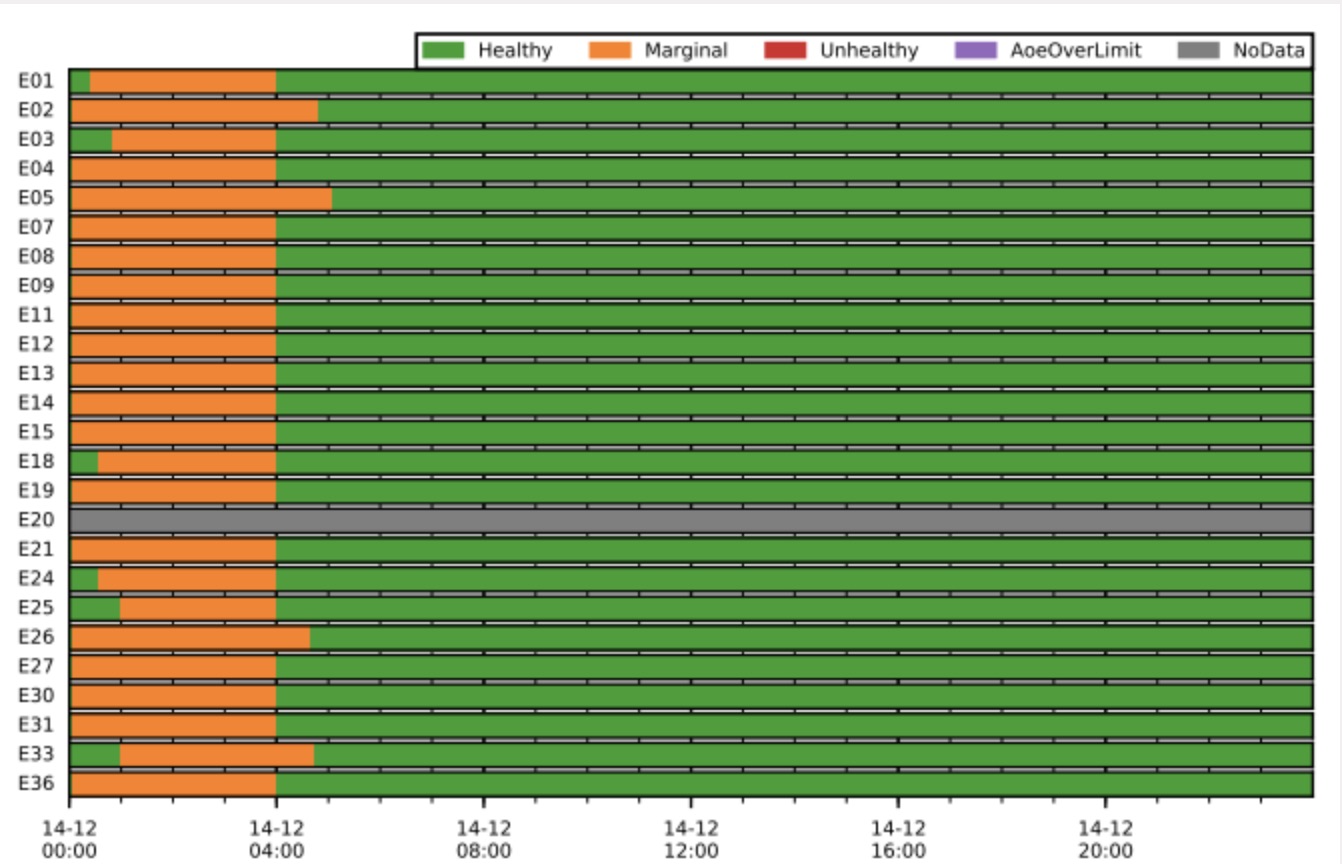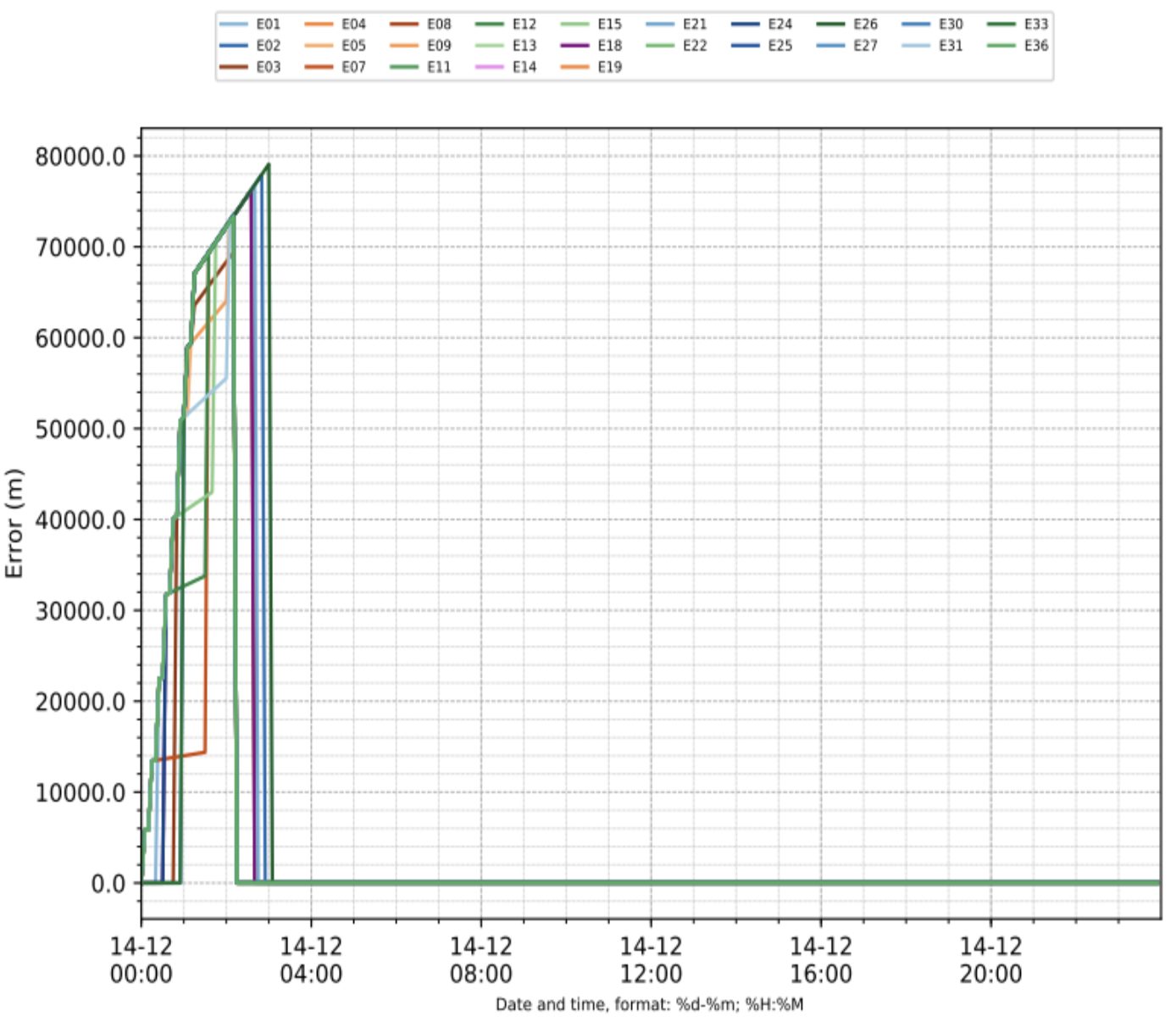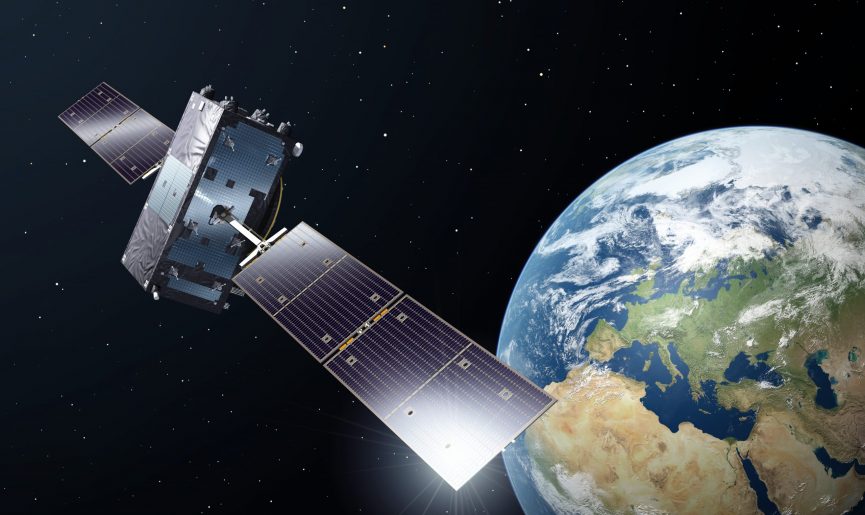Pursuant to the 6-hour Galileo system outage on December 14, the European GNSS Agency (GSA) issued an update stating that the “service incident,” while still under investigation, “is confirmed to be related to an abnormal behaviour of a ground atomic clock in the time determination function of the system.”

The statement continues “The time synchronisation and orbit determination algorithms immediately flagged the data as MARGINAL (SISA*=NAPA**) before it affected the quality of the measurements. However, the incorrect data was still uploaded to the satellites. User receivers that do not process the health and status flags, or that keep MARGINAL satellites as part of the position solution computation, may have experienced large positioning errors.”
The on-line document includes three plots, displaying respectively the signal-in-space (SIS) status for the F/NAV signal corresponding to the Open Service and shown above (courtesy GSA), the SIS status for the I/NAV message corresponding to the Safety of Life service, and the pseudorange errors observed by the users if processing the satellites flagged “Marginal,” shown below. This appears to show errors of up to 80 kilometers in positioning for receivers that did not process the health and status flags.

The statement concludes “The anomaly investigation is pursued with the objective of identifying the detailed sequence of events and the necessary corrections to prevent such failures (and protect users). Based on user feedback received so far, updated guidelines for the processing of health and status flags in the Galileo OS Service Definition Document are also under assessment.”






